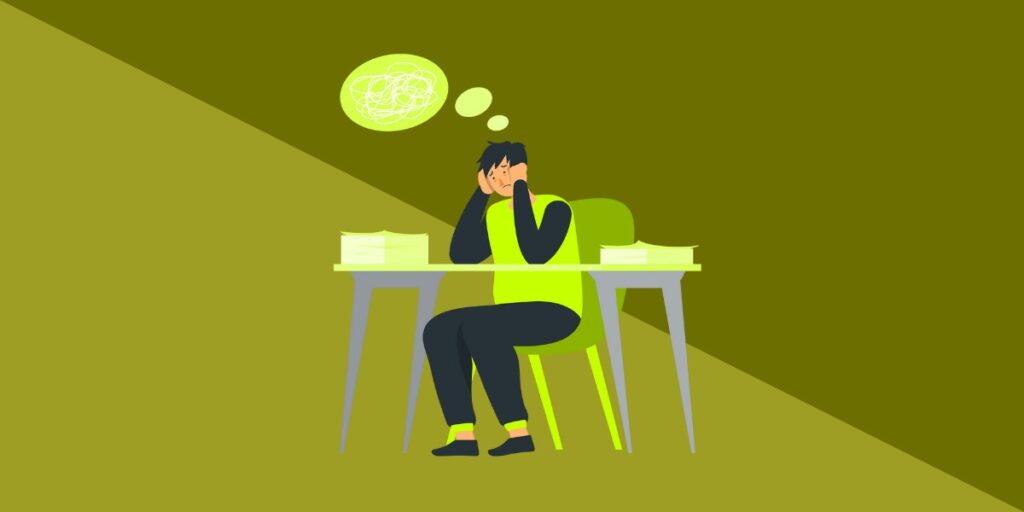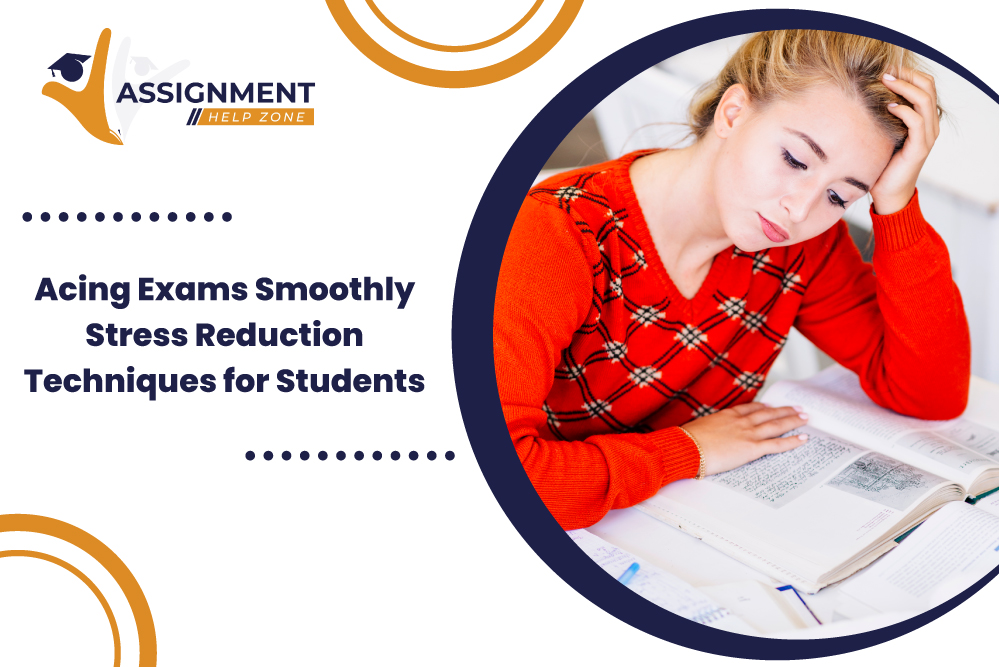Studying for exams is one of the most stressful times for students of all ages. This pressure brings with it the fear of failure in the conscious mind, which leads to a lot of anxiety. But what many people do not understand is that, with the correct techniques, studying, and approach, exam stress and poor grades can be avoided.
In this blog post, you will find some useful exam help online strategies that can help minimize stress, enhance studying effectiveness, and increase confidence.
Understanding Exam Anxiety
Test-taking stress might affect every individual in a way that can show physical symptoms like a rapid heartbeat, excessive sweating, and difficulty concentrating. But it can also cause a lot of emotional problems like the feeling of worry, fear, and self-doubt in students.

Common causes of exam anxiety include:
Fear of failure
Lack of preparation
Perfectionism
High expectations
Anxiety during examinations may be regarded as a normal aspect of stress and should therefore be managed carefully because it can hamper the performance of a student. This points to the fact that with knowledge of the conditions and signs associated with exam anxiety, you are in a position to require measures to remedy the situation.
Conquering Exam Stress: Healthy Ways to Handle Exam Stress
The key to reducing stress, specifically exam stress is to use proper study techniques. These strategies also increase the likelihood of achieving good grades. Let’s explore some key approaches:
Planning and Organization
Create a study schedule: Create a study schedule to allocate certain hours for definite subjects.
Set achievable goals: Divide your material into smaller segments that can be easily manageable.
Prioritize tasks: First of all, stay on the key points of discussion.
Active Learning Techniques
Engage with the material: Do not just read; summarize, write notes, or even teach someone else the content.
Practice with questions: Do some past papers or practice questions to know what to expect.
Use study aids: Use flashcards, information maps, or even diagrams as some of the tools to organize information.
Prioritizing Well-being
Sufficient sleep: Ensure you get enough sleep to concentrate and memorize effectively.
Healthy diet: Incorporate nutritious foods to boost brain performance.
Regular exercise: Exercising physically and mentally alleviates stress and increases mood.
Relaxation techniques: Practice mindfulness, meditation, or deep breathing in your day-to-day life.
Ways described in this post help with minimizing anxiety and improving the quality of your life during exams. In the following section, you will find useful information on how to manage your anxiety on the exam day.
Calming Your Nerves: Strategies to Use on the Exam Day
It is always stressful to have an examination but with a positive attitude and good preparation, you can face it. Here are some tips to help you stay calm and focused:
Arrive early: Give yourself sufficient time to settle in and reduce last-minute stress.
Relaxation techniques: Take long and slow breaths if you are feeling anxious or take up meditating as a hobby.
Read instructions carefully: It is good to know what is expected from a student before he or she starts an exam.
Time management: Ensure every section of the exam takes an equal amount of time so that you are not hurried up.
Positive self-talk: Engage in positive self-talk to boost your confidence.
However, it is typical to experience a certain level of stress and by employing these tips, you can increase your chances for success.
Dealing with Exam Pressure: Overcoming Setbacks
Tests can be challenging, and it’s natural to encounter difficulties along the way. Rather than give in to these setbacks, you should concentrate on building up their resilience and optimism. Here’s how:
Stay positive: Stay optimistic and have confidence in yourself and your skills.
Learn from mistakes: Never forget to learn from your mistakes so that you can know the steps that need to be changed.
Seek support: It could help to discuss the issue with friends, or even family, or the teacher if there is one.
Take breaks: Take a break from your books and have some time to refresh yourself.
Celebrate small wins: Reward yourself no matter how little success you may have made.
Remember, everyone experiences setbacks. What matters are the reactions they provoke. If you accept things and try to make them work, then that failure is a part of the experience that can open up to more success rates.
Exploring External Academic Services with Caution
The anxiety of exams may lead many students to consider using outside academic services. However, one has to be wary of these services while subscribing to these online exams help because they may proffer instant resolutions or increased grades.
Understanding Your Options:
Such services provide different types of take-my- law exam services: with home tutoring, creation of essays or DA, or help with exams. Although it is possible to seek help from a tutor, becoming a recipient of services that offer to write an exam on your behalf is also an option.
Weighing the Pros and Cons:
Even though these services seem attractive whenever one has challenging work to accomplish, the outcome may be negative. Such services are convenient to use but are considered to violate the principles of academic integrity, which entails severe academic sanctions.
Seeking Help Within Ethical Boundaries:
Instead of using such services, strive to gain skills and information ethically. Professors, teaching assistants, or any academic support center’s help should be sought for explanation or advice. Students should try to form study groups with classmates to increase their comprehension and make learning easier. It does help to remind ourselves that academic integrity is beneficial for individuals as well as society.
Conclusion
Coping with exam stress involves both, every technique that can be used when preparing for the exam and the way of thinking in this regard. When you know the reasons behind exam stress, use effective approaches to learning and promote overall health, your anxiety levels will be lowered and so will one’s performance.
Just a reminder, worrying before the exam is perfectly normal. It’s important to focus on preparation, stay calm during the task, and trust in your abilities. As long as you are determined to achieve something and you work for it, you will surely achieve academic success.
Remember, everyone progresses at their own pace, and success is unique to each individual. Practice how to be victorious in all aspects of your life, as small victories should also be noted, and failures should be turned into stepping stones.
By using these tips, and ensuring that there is a good balance between studying and leisure, one will be ready to take those examinations without the blues to get the results that he or she wants.


